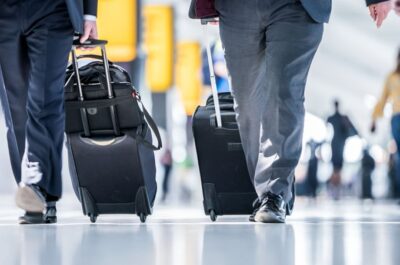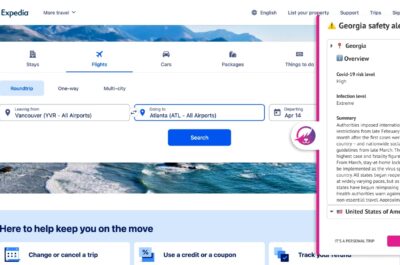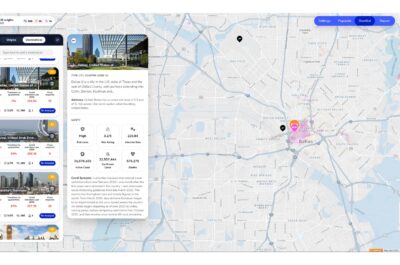The solution for business travel managers looking to balance the needs of their business with reducing carbon footprint is to travel smarter. This means choosing more environmentally friendly options when planning travel.
Just over a year ago, business travel more or less ground to a halt with spending on business travel redcued by half in 2020. With the world now gradually beginning to open up, many businesses will be taking a fresh look at their business travel. The pandemic has brought with it many valid concerns around budget and resources, not to mention the rise of digital meetings. Alongside these concerns sits the elephant in the room: climate change.
Carbon footprint & natural disasters
Consider this – just one long round-trip flight can produce more carbon per passenger than the average person produces in a year. In 2019, humans produced more than 43 billion tonnes of CO2, and the global aviation industry was responsible for around 2% of those emissions.
Business travel managers may also have concerns about natural disasters – on the rise as a result of environmental damage – and their potential impact on business travel. The severity of natural disasters, such as tropical and winter storms, wildfires and monsoon rainfall will only increase and emergency services, stretched thin due to the pandemic, may struggle to tackle them. Emergency management agencies are grappling with shortages in manpower, equipment and other resources due to efforts directed towards tackling COVID-19. This in turn limits the effectiveness of emergency response and hampers post-disaster recovery, delivering a knock on impact on travel.
Our global team of analysts at Riskline predicts the countries particularly at risk from natural disasters in the year ahead include India, Bangladesh, Vietnam, Thailand, Philippines, China and Pakistan during the forthcoming cyclone and monsoon seasons (May-November).
The fundamental need for face to face
This bleak outlook may lead business travel managers to entirely rethink their business travel strategy. Over the past year we’ve seen how digital alternatives – video conferencing, online and hybrid events – can replace face to face meetings to a certain extent. Businesses are now more likely to want to fully establish the need for business travel to determine the reasons and objectives for meeting face to face.
However, let’s not forget the fundamental reason behind business travel – to help companies conduct business successfully. Business travel is a major contributor to building relationships across the globe and, for this reason alone, is not likely to be fully replaced by the virtual world anytime soon.
Travel smarter
The solution for business travel managers looking to balance the needs of their business with reducing carbon footprint is to travel smarter. This means choosing more environmentally friendly options when planning travel.
The business travel sector is responding accordingly. Airlines are working on ways to make their flights carbon neutral. In late 2019 and early 2020, we saw major airlines leading the corporate climate action movement, with Qantas, British Airways, Air New Zealand, Etihad and Delta launching commitments including 100% carbon offset flights, incentivising carbon offset flights via loyalty programs, and billion dollar carbon strategies.
As large consumers of energy (through lighting, heating and cooling, catering and washing facilities) and producers of waste, hotel groups have made large strides in working on green accommodation solutions. These include the use of renewable energy and responsible consumption policies: energy-efficient lighting, working with local suppliers, offering water-wise F&B options and using recycled and recyclable materials.
Putting the weight of the sector behind sustainable solutions
As an industry, we have to work with our partners and suppliers to request sustainable solutions and help accelerate the pace of change. Our sector’s buying power may have reduced – global spending on business travel is expected to show a 52% decrease for 2020 to $694 billion USD, down from $1.4 trillion USD in 2019 – but we can still use our influence to harness good. This will add up to a growing commitment across the travel supply chain to define and deliver on sustainability goals for the benefit of the environment and our post-pandemic world.
Adam Schrader is Director of Operations at Riskline.















































































































































































